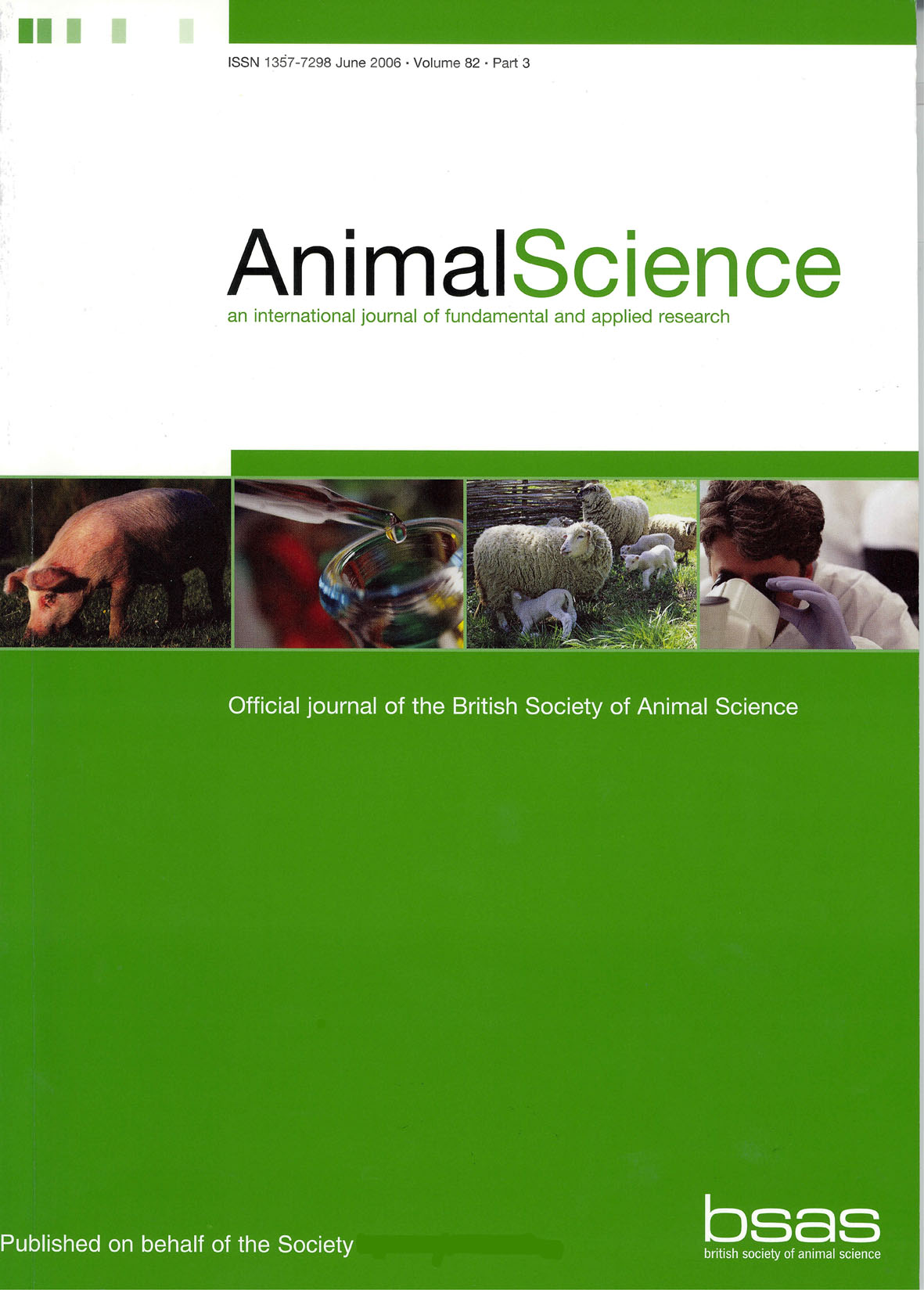Article contents
The influence of dietary protein and level of feeding on the growth performance and carcass characteristics of entire and castrated male pigs
Published online by Cambridge University Press: 02 September 2010
Abstract
1. Three isocaloric diets containing 170, 210 or 231 g crude protein per kg were given at two levels, and offered ad libitum to entire and castrated male pigs growing from 20 to 70 kg live weight.
2. Between 20 and 45 kg, growth rate improved with each increase in level of feeding (P < 005) and, on the ad libitum treatment the food intake and growth performance of both entire and castrated pigs were similar. On the restricted feeding treatments the growth performance of entire, but not of castrated pigs, improved when dietary protein was raised from 170 to 210g/kg (P < 005).
3. During the live-weight periods 45 to 70 and 20 to 70kg, raising food intake improved growth rate (P < 005) but increased the food conversion ratio and carcass fat measurements at 70 kg (P < 0·05). However, food conversion ratio and the majority of carcass characteristics of entire pigs fed ad libitum were equivalent to those of castrated pigs fed at the lowest level.
4. Dietary protein level had no significant effect on growth performance from 20 to 70 kg or on carcass fat measurements at the latter weight. However, each increase in dietary protein in the live-weight period 45 to 70 kg depressed the performance of castrated pigs (P < 0·05) while that of entire pigs was reduced when the protein level of the diet was raised from 210 to 231 g/kg.
- Type
- Research Article
- Information
- Copyright
- Copyright © British Society of Animal Science 1982
References
REFERENCES
- 14
- Cited by


